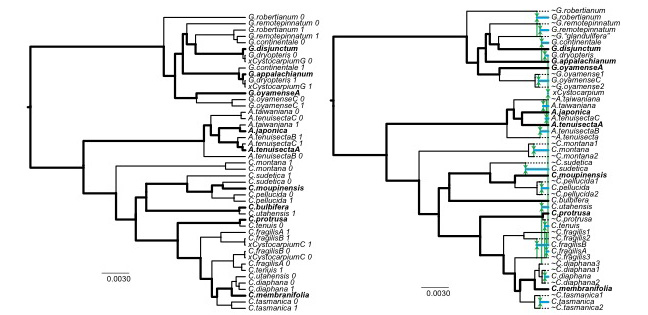Another focus in the lab is on developing and applying phylogenetic tools to understand reticulation evolution–cases where the evolutionary history of a group of organisms includes a combination of divergence events and reticulations (hybridization events). Of particular interest in this context hybrid polyploids, individuals of which contain multiple genomes with different evolutionary histories. Groups containing these “allopolyploids” are important from evolutionary and biodiversity perspectives, but have been historically difficult to study because it is difficult to general molecular data for allopolyploids (because they contain more than one copy of each gene, allopolyploid loci can’t be directly sequenced in the traditional way) and because the evolutionary history of allopolyploids is a reticulate network rather than a classic phylogenetic tree, and such networks are both difficult to infer and difficult to use in subsequent analyses.
![]()
One recent project has been to develop a web lab workflow and associated bioinformatic pipeline–“PURC“–to generate phylogenetic data for polyploids, which we hope will facilitate research into a wide variety of understudied polyploid complexes. For example, such data can be used to infer the allopolyploid species networks showing the evolutionary history of such groups, like the ones below.
